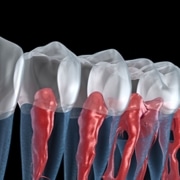Retreatment for Your Root Canal
When your dental professional performs a root canal to save your tooth, they clean out the inner workings and refill the root canals with a material that’s intended to prevent re-infection. Lastly, the tooth is sealed with a restoration. Usually, this fixes the dental issue, and as long as you continue to brush and floss regularly, you’ll experience no further problems with that tooth. However, sometimes a root canal fails to prevent re-infection. When this happens, your root canal specialist in Thornton, CO, may suggest a procedure called a root canal retreatment.
What Can Cause a Root Canal to Fail?
There are several possible scenarios in which a root canal may fail to protect your tooth. For example:
- If there was a delay between the original root canal and the placing of the restoration
- If there is a subsequent injury to the treated tooth
- If the treated tooth develops a second cavity after treatment
- If the restoration becomes loose or breaks away
- If your dentist was unable to reach curved or narrow root canals to clean them thoroughly during your initial procedure
Any one of these possibilities could cause you to need root canal retreatment. If you begin experiencing pain in a tooth previously treated, schedule an appointment to see your dental professional right away before your condition worsens.
What Is a Root Canal Retreatment Procedure?
During your root canal retreatment, your dental professional will perform an oral exam and take diagnostic tests, such as X-rays, to better understand why your initial restoration failed. Afterward, they’ll devise a course of treatment. A root canal retreatment involves removing the initial restoration, re-cleaning and sanitizing the root canals, and re-filling the holes. They’ll also place a new restoration on top to seal the tooth. Ideally, this will fix the issue you’re having with that particular tooth.
If you suspect you may need root canal retreatment in Thornton, CO, call Colorado Root Canal Specialist today. A member of our friendly and experienced team is waiting to take your call. And we’re happy to schedule an appointment that conveniently fits your busy schedule. Contact us today to schedule a consultation and comprehensive oral exam.












